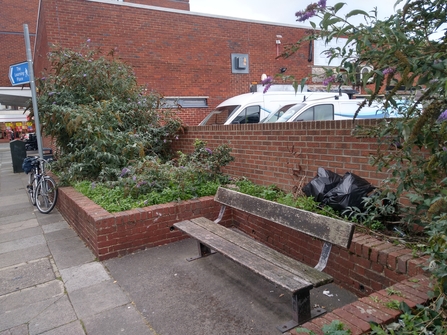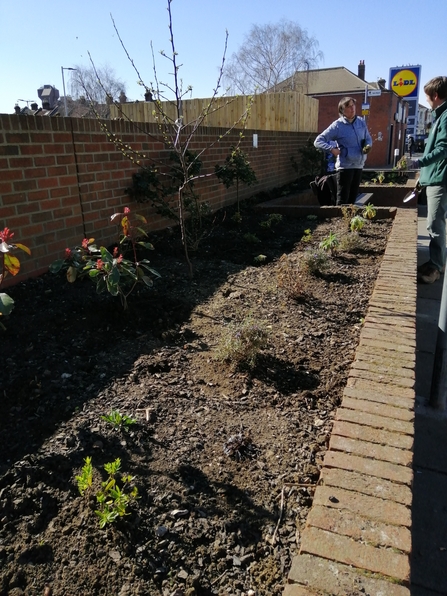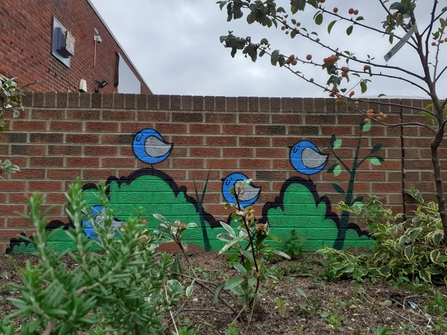On Derby Road in North End, Portsmouth, local residents identified empty planters, that were once presumably filled with plants, but had been left abandoned for many years. When we, PFoE, approached our members about where they might like to see more trees and greenery in their area, this location was suggested.
Community group takes action:
The project to breathe new life into these empty planters was a collaborative one. PFoE may have started the conversation, but with the help of Wilder Communities Projects officer, Andy Ames, a community group was found to adopt the space. Creative Advances, who are based a few doors down from the planters and who already run a gardening group, agreed to adopt the space and look after the bed for us.




